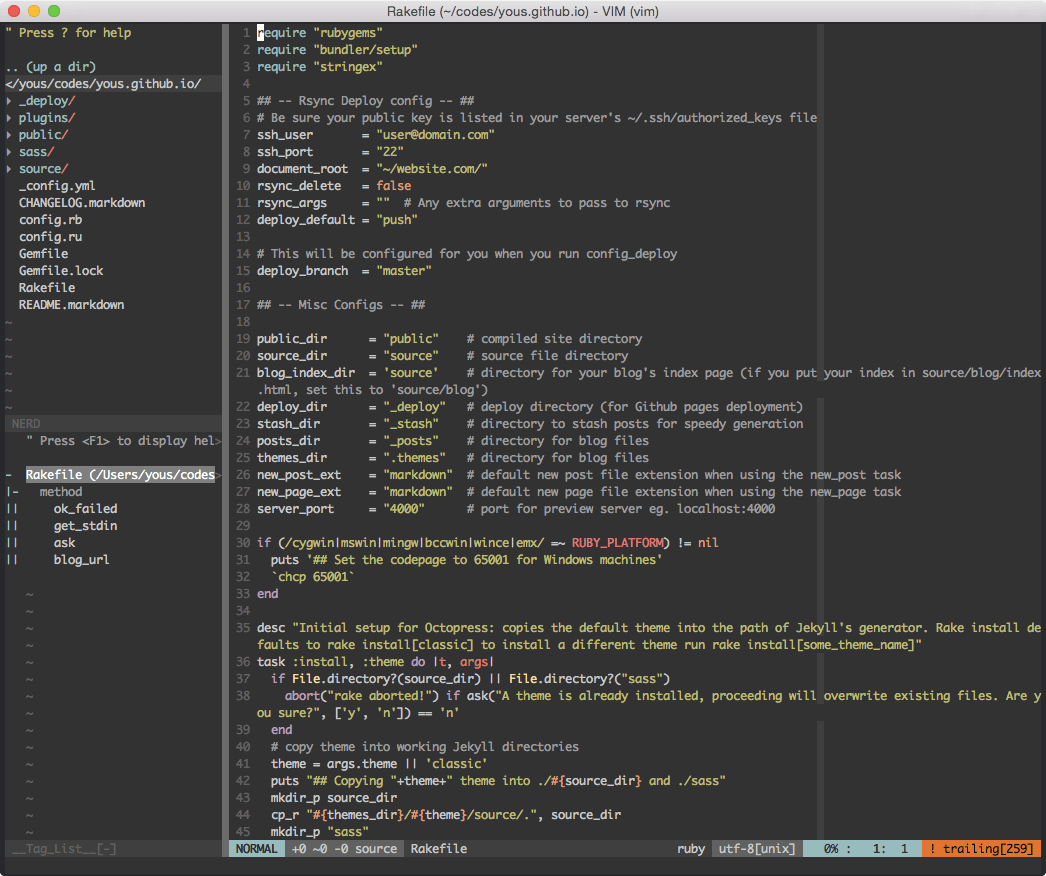Comparing binary files
Seeing differences between files
As using Git, looking changes of files with
git diffis common. Always we can check the status of files withgit status, including whether there is a new file that isn’t added to index, existence of changed files.I downloaded the syllabus of each course I registered before the start of the semester. This is the first week of semester, professors introduce their course with the adjusted syllabus. Of course I can access the updated ones, but I can’t sure that the files which already I have are the same with which I downloaded right before. I want to keep the old one and the new one both, avoid just overwriting them.
Comparing binary files
I just wanted to check whether two binary files are the same or not, no matter what the difference is.
Windows
You can use
fc, file compare, which is Microsoft DOS command.fc /b file1 file2The
/bflag is for a binary comparison. If two files are the same, it prints a message like ‘FC: no differences encountered’, if they’re not, it shows each byte of two files per line.Unix
You can use
cmpwhich compares two files byte by byte.cmp file1 file2When two files are the same, it prints no message and return 0. If they are different, it prints some message and return 1.
ChristmasCTF 2014 Write-up

SECCON CTF 2014: Easy Cipher Write-up
Crypto100 - Easy Cipher
87 101 108 1100011 0157 6d 0145 040 116 0157 100000 0164 104 1100101 32 0123 69 67 0103 1001111 1001110 040 062 060 49 064 100000 0157 110 6c 0151 1101110 101 040 0103 1010100 70 101110 0124 1101000 101 100000 1010011 1000101 67 0103 4f 4e 100000 105 1110011 040 116 1101000 0145 040 1100010 0151 103 103 0145 1110011 0164 100000 1101000 0141 99 6b 1100101 0162 32 0143 111 1101110 1110100 101 0163 0164 040 0151 0156 040 74 0141 1110000 1100001 0156 056 4f 0157 0160 115 44 040 0171 1101111 117 100000 1110111 0141 0156 1110100 32 0164 6f 32 6b 1101110 1101111 1110111 100000 0164 1101000 0145 040 0146 6c 97 1100111 2c 100000 0144 111 110 100111 116 100000 1111001 6f 117 63 0110 1100101 0162 0145 100000 1111001 111 117 100000 97 114 0145 46 1010011 0105 0103 67 79 1001110 123 87 110011 110001 67 110000 1001101 32 55 060 100000 110111 0110 110011 32 53 51 0103 0103 060 0116 040 5a 0117 73 0101 7d 1001000 0141 1110110 1100101 100000 102 0165 0156 33
It looks like a set of numbers split with space. But there are multiple integer bases.
nums = %w(87 101 108 1100011 0157 6d 0145 040 116 0157 100000 0164 104 1100101 32 0123 69 67 0103 1001111 1001110 040 062 060 49 064 100000 0157 110 6c 0151 1101110 101 040 0103 1010100 70 101110 0124 1101000 101 100000 1010011 1000101 67 0103 4f 4e 100000 105 1110011 040 116 1101000 0145 040 1100010 0151 103 103 0145 1110011 0164 100000 1101000 0141 99 6b 1100101 0162 32 0143 111 1101110 1110100 101 0163 0164 040 0151 0156 040 74 0141 1110000 1100001 0156 056 4f 0157 0160 115 44 040 0171 1101111 117 100000 1110111 0141 0156 1110100 32 0164 6f 32 6b 1101110 1101111 1110111 100000 0164 1101000 0145 040 0146 6c 97 1100111 2c 100000 0144 111 110 100111 116 100000 1111001 6f 117 63 0110 1100101 0162 0145 100000 1111001 111 117 100000 97 114 0145 46 1010011 0105 0103 67 79 1001110 123 87 110011 110001 67 110000 1001101 32 55 060 100000 110111 0110 110011 32 53 51 0103 0103 060 0116 040 5a 0117 73 0101 7d 1001000 0141 1110110 1100101 100000 102 0165 0156 33) str = nums.map do |s| ord = if s.size >= 5 s.to_i(2) elsif s =~ /[a-f]/ s.to_i(16) elsif s.start_with?('0') s.to_i(8) else s.to_i end ord.chr end puts str.joinJust run with Ruby:
Welcome to the SECCON 2014 online CTF.The SECCON is the biggest hacker contest in Japan.Oops, you want to know the flag, don't you?Here you are.SECCON{W31C0M 70 7H3 53CC0N ZOIA}Have fun!Finally the flag is:
SECCON{W31C0M 70 7H3 53CC0N ZOIA}SECCON CTF 2014: QR (Easy) Write-up
QR200 - QR (Easy)
Funniest joke in the world(?):
“Last night, I had a dream I was eating QR cakes….
but when I woke up, half my QR code was gone!”世界一面白いジョーク:
昨晩フランネルケーキを食べる夢を見たんだけど、
朝起きたらQRコードが半分なくなってたんだ!Automatically Quit Vim if Actual Files are Closed

Sidebar
Many Vim user use plugins which open sidebar like NERDTree or Tag List. In my case, I always open NERDTree and Tag List on Vim startup. Their file and tag navigation features are extremely handy.
We use
:qto quit,:q!orZQto quit without saving,:wq,:xorZZto save and quit. But these commands are applied to only one buffer. NERDTree or Tag List windows are not closed until we close them individually or quit all using:qa.Getting into the Problem
But as one of the Vim users, I close it within a few minutes or even a few seconds after I opened it. I want to keep quitting Vim easy. Using
:qaeverytime doesn’t make sence. Actually, NERDTree gives us a tip to close Vim if the only window left open is a NERDTree:autocmd bufenter * if (winnr("$") == 1 && exists("b:NERDTreeType") && b:NERDTreeType == "primary") | q | endifIf I close the last window when a NERDTree exists, Vim automatically closes. But what if we have Tag List window also?
winnr("$")returns the current window count, so the above code triggers only when the window count is 1. So Vim will quit automatically only when NERDTree is the last window.
